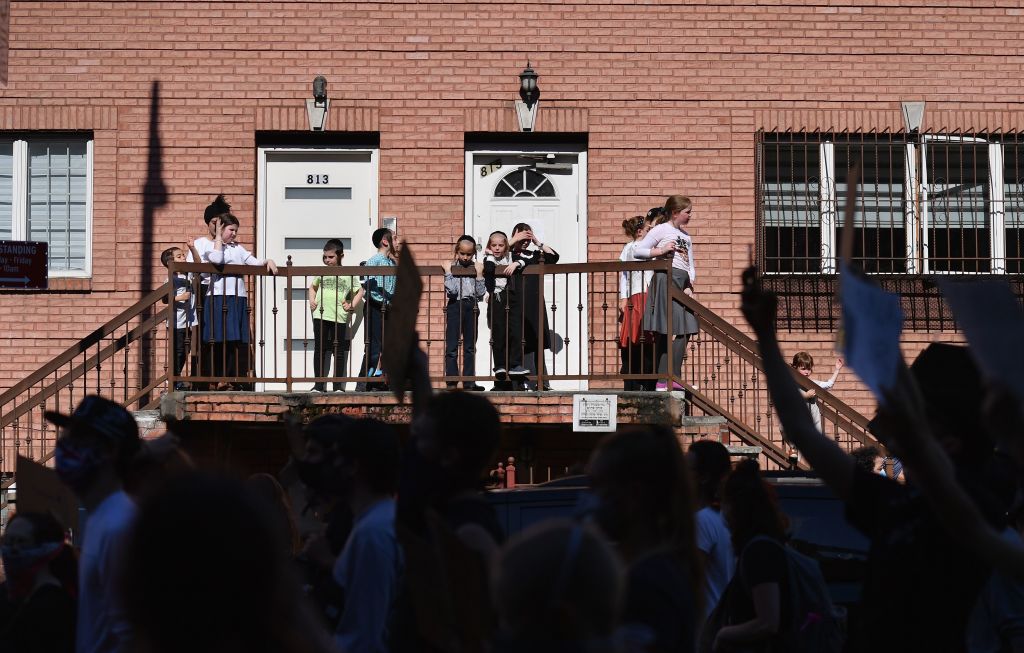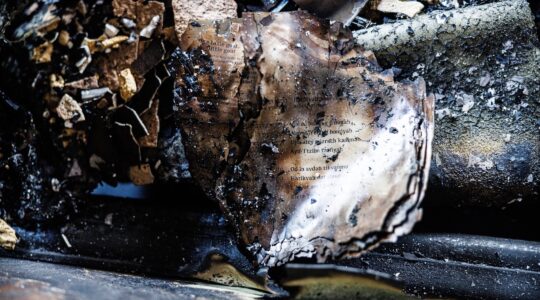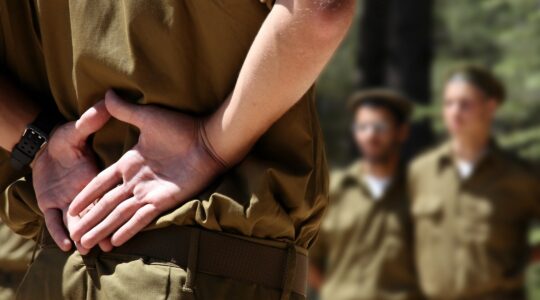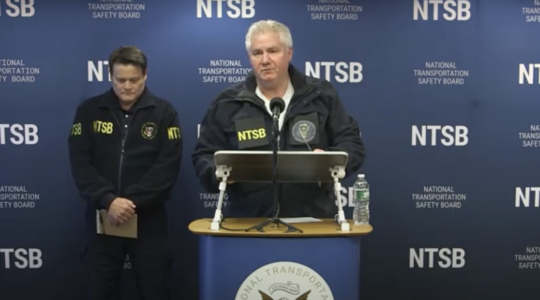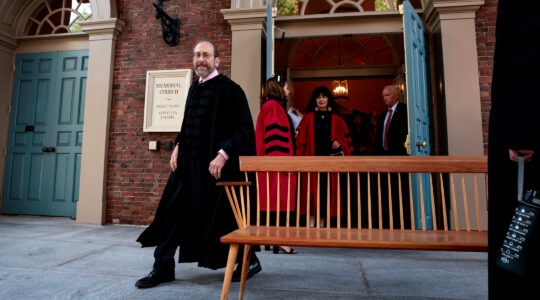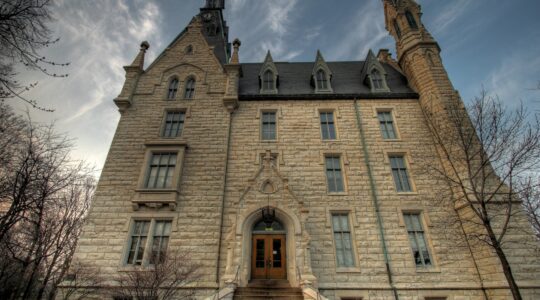(JTA) – As Orthodox lawmakers were brazenly cutting the locks off a New York City playground on Tuesday morning, Orthodox children were settling in for a school day just nine blocks away.
The classes at Yeshiva K’tana Torah Vodaath in Brooklyn were the first held in the school building since mid-March, when New York ordered schools closed to curb the spread of the coronavirus. In resuming classes, the elementary school joined a number of yeshivas in operating illegally as the school year comes to a close.
The students had to get themselves there without the transportation provided by the city when schools are open.
“Since I suppose all the boys will be going to day camp this summer, let this be the training ground for it,” Rabbi E. Brieger, a teacher at the school, wrote in a letter to families Monday night.
Unlike with the playgrounds, where community leaders are increasingly open about families’ need for a safe place to play, the Orthodox schools that have opened in the past several months appear to be taking deliberate steps to evade notice.
Residents in the Borough Park section of Brooklyn say they have observed children walking to school buildings with or without uniforms or with homework in shopping bags instead of backpacks. Groups of children have been seen entering basements and side entrances of school buildings, even as signs on the front door indicate that the buildings are closed. According to a NY1 report, more than a dozen children walked into Yeshiva Torah V’Yirah in Borough Park last week.
Some schools have had teachers call parents individually to tell them school is reopening, avoiding the robocalls and hotlines typically used for announcements or written communication. But at least one school sent a letter last week indicating its plans — and the strategies families should use to avoid calling attention to themselves.
Written in Yiddish, the letter provided instructions for the return to school “in order to not be disturbed by foreign (outside) elements.” The letter instructed parents to send their children with masks, but not to bring them to school using non-Jewish car services or to leave strollers in front of the building while dropping off children.
“Do not stop in front to talk with one another,” the letter said. “Only come and go quickly.”
Mayor Bill de Blasio vowed last month to keep yeshivas closed, telling the radio station 1010 WINS, “If we find them, we’ll shut them down and they won’t come back,” according to the New York Post. But it is unclear what actions, if any, the city has taken at a time when it is actively maintaining the closures of public parks in Orthodox neighborhoods.
In at least one case, the city closed a case just 16 minutes after a 311 call came in from a man who said he observed a large group of children entering a school that day. The call was made and the case closed in the middle of the night.
The New York Police Department did not respond to multiple emailed requests for information about enforcement at yeshivas in recent weeks. A spokesperson for the Mayor’s Office also did not respond to multiple emails asking for information about enforcement.
The reopenings have generated tension within the yeshiva system. One girls’ school in Brooklyn sent a letter to families explaining why it was unwilling to operate illegally even as other schools made a different decision.
“The schools which have chosen to open have set guidelines; no preschools, minimal hours of attendance, some have alternate days, no transportation, no playing in the playground, students enter buildings form [sic] side or back doors, many have staggered the attendance of grades throughout the day, no uniform,” the letter said. “The underlying objective of these guidelines is to avoid being noticed.
“Most importantly, when students are told all these rules in order to avoid being noticed, this presents a huge chinuch compromise as students are being taught to do things illegal while avoiding ‘being caught,’” the letter said, using the Hebrew word for education.
Like parents across the city, Orthodox parents are desperate to send their children back to school nearly 100 days after the state closed schools at the start of the pandemic. With as many as eight or nine children and sometimes more, the pressure of having children at home full-time is acute, and Orthodox lawmakers have been outspoken in calling for the reopening of camps and playgrounds to keep the thousands of Orthodox children occupied this summer.
Orthodox protests calling for the reopening of camps and playgrounds have explicitly compared themselves to the George Floyd protests that spread across the city and country in recent weeks. Children carried signs last week with the message “No camps, no justice,” and social media posts were posted with the hashtag #kidslivesmatter. One article published Tuesday by Yeshiva World News, an Orthodox news site, thanked Floyd, the black man killed in police custody in Minneapolis, for giving people in the community the nerve to defy orders of the mayor and governor and return to yeshivas.
“Only when they saw the double standard,” wrote Shmuli Mogelowitz, the author, the educational institutions “realized the tremendous disparity in how Klal Yisroel [the Jewish people] is being treated and how the protestors are being treated.”
At Yeshiva K’tana Torah Vodaath, Rabbi E. Brieger wrote in a letter to parents on Monday that the school would “respect anyone that wants to wear a mask etc. or that wants distancing.” He also said students could continue to tune in by phone, though he emphasized that that option, provided while schools were closed, “still is not the same as classroom learning.”
And he offered information that he said indicated that children and families would not be at risk if students returned to classes. Using a Yiddish word meaning holy, he added, “I personally don’t see why anyone would hold back his son from learning the Heiliga Torah, since for children the virus is not relevant.”
Brieger noted that a celebration of the year’s learning would take place in the school’s dining room next week.
JTA has documented Jewish history in real-time for over a century. Keep our journalism strong by joining us in supporting independent, award-winning reporting.
